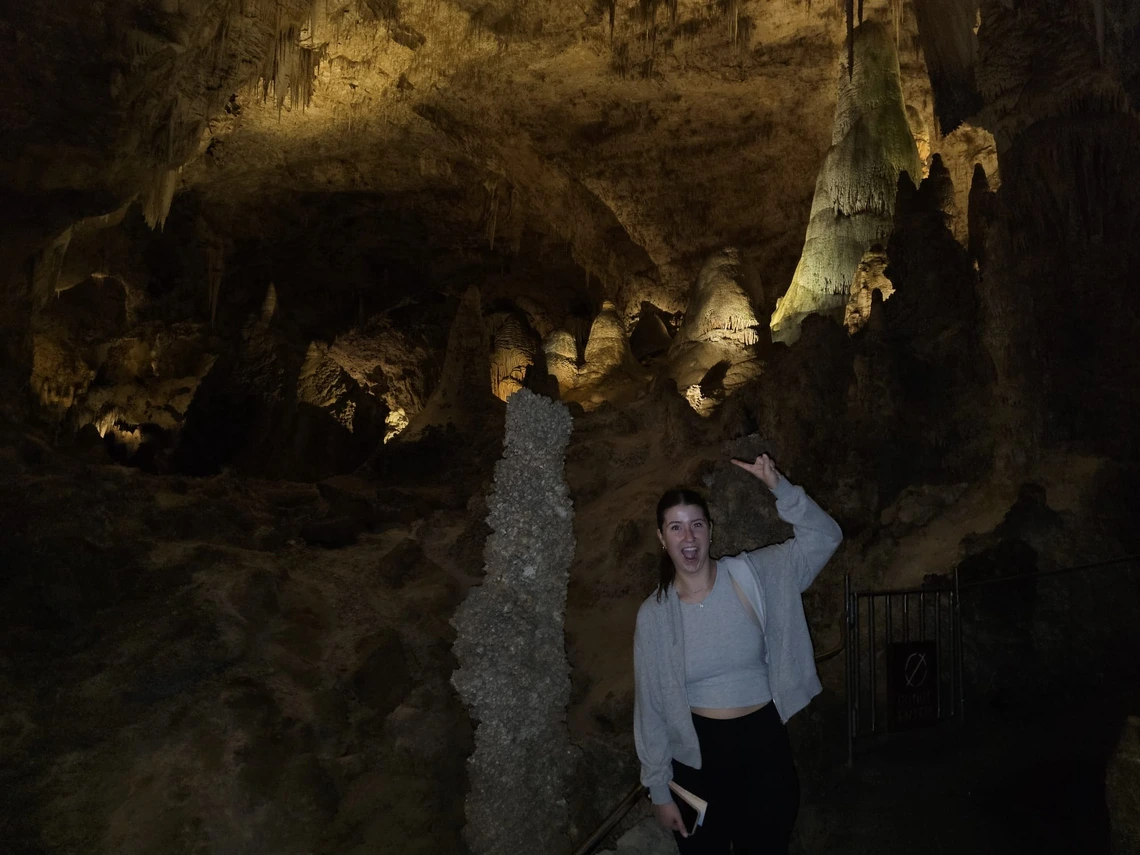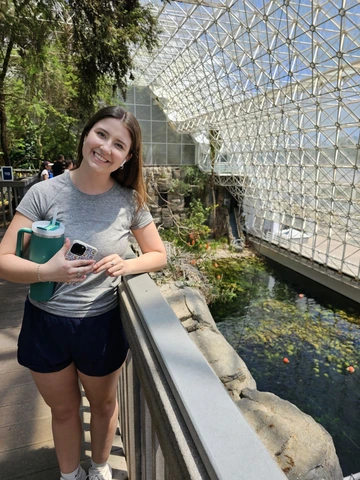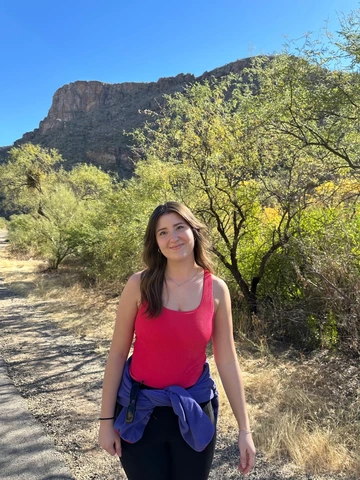Hope Barton: Environmental Policy for People and the Planet

Hope Barton is a sophomore at the University of Arizona double majoring in Natural Resources and Public Management and Policy with an emphasis on Environmental Policy. Her academic journey is deeply rooted in her desire to address environmental challenges that directly affect vulnerable communities.
In this Q&A, Barton shares how her rural upbringing shaped her passion for environmental justice and reflects on how nature and community have inspired her academic and professional journey.

What is your year, and what are you studying? Why did you choose these fields?
I am currently a sophomore double majoring in natural resources and public management and policy with an emphasis on environmental policy.
When I applied to the University of Arizona, I was originally an environmental science major. However, I soon realized that I am much more interested in the effects the environment has on living things and communities and less interested in the technical aspects of lab work and research.
I chose natural resources and policy path because I am from a small, rural town in Oklahoma, home to a 150-acre Superfund site. This site was designated by the EPA in 2013, but significant remediation efforts did not begin until around 2022.
I have personally witnessed how environmental neglect and delayed response have deeply affected my community and the people I know. When the environment suffers, the people living in it suffer. My goal is to amplify the voices of those who are too often left unheard, especially those in rural, underprivileged communities facing similar challenges.
This experience is what motivated me to pursue my current studies. I want to ensure that those who are most impacted by environmental harm have a seat at the table when it comes to policy decisions and solutions. My mission is to advocate for communities like mine, where environmental issues are not abstract concepts but daily realities that demand action.
What are you interested in doing with your future career?
For my future career, I’m interested in working as an environmental policy analyst or consultant, particularly in rural communities. I want to help shape policies that focus on sustainability and environmental justice, ensuring that under-resourced areas get the support they need to protect their environment.
I care about these communities because I relate to their struggles. Growing up, I knew many farmers and people in agriculture who relied on the environment for their livelihoods, which is why environmental issues have always been important to me.
One thing that excites me about working in these areas is the opportunity to have a real impact. Poorer rural communities are often overlooked, and I want to help bring attention to their needs and make sure they have a voice in the conversation about environmental protection and sustainability.
How have you been involved in the environment on and/or off campus? What do you enjoy about, or what have you learned from, these experiences?
Through the Diana Liverman Scholars Program, I’ve connected with students from diverse disciplines who share a commitment to environmental sustainability. This experience has encouraged me to think more critically about how we approach environmental challenges and the importance of interdisciplinary collaboration. Engaging in discussions with individuals from different academic backgrounds has been inspiring, as it shows how we can all contribute to solving environmental problems in unique ways.

Outside of my academic work, I enjoy spending time in nature, particularly hiking and exploring the outdoors. Since moving to Tucson, Himmel Park has become one of my favorite spots. It’s a place where I can relax, reconnect with the environment, and take in my surroundings. These moments spent outdoors have strengthened my passion for environmental policy and sustainability and have reinforced the importance of preserving these third places for future generations.
Through my academic involvement and time in nature, I’ve learned the importance of community and how our personal connections to the environment shape our work.
Whether through the Liverman Scholars program or simply being outdoors, I’ve realized that we all have a role in protecting the environment. Nature has taught me the value of being present in the moment, slowing down and appreciating the world around me. I can sometimes get caught up in my head, and being outdoors helps me to reset, focus, and reconnect with what's truly important. In these moments, I feel most at peace, and they remind me why environmental sustainability matters, both in my studies and daily life.
Are there any other programs you’re involved in that have contributed to your experience at the U of A that you’d like to mention?
One program that’s really shaped my experience at University of Arizona is KAMP Student Radio. I joined right at the start of my freshman year, and it’s been such a welcoming space with genuinely nice, interesting people. It’s a perfect community for anyone into music, sports, photography, or journalism. Being part of KAMP has allowed me to connect with others and develop skills that go beyond just academics. Both KAMP and the Liverman Scholars Program have positively influenced my time at the U of A, allowing me to grow both personally and professionally.
Why do you think students should care about the environment, even if it isn't their major or area of study?
I think students should care about the environment, even if it is not specifically their area of study, because the environment is the foundation of everything we do. It provides the resources we need for everything from the latest technology to the food we eat.
The truth is, if you think the state of the environment doesn’t affect you, it’s likely because it hasn’t yet. But if things don't change, it soon will. The environment is in the air we breathe, the water we drink, and the materials we use—whether we recognize it or not.
For example, the fashion industry relies on cotton, which is heavily influenced by the health of the environment, and the film industry uses natural landscapes for filming locations, which are threatened by climate change.
As Lady Bird Johnson once said, 'The environment is where we all meet; where we all have a mutual interest; it is the one thing all of us share.' Right now, the environment is suffering, and if we don’t act, it will eventually impact everyone, regardless of their field of study.
Solving our environmental crisis requires interdisciplinary action, and every student has a role to play in that effort. We all have a responsibility to take care of the environment simply because we are all residents of the same Earth.
